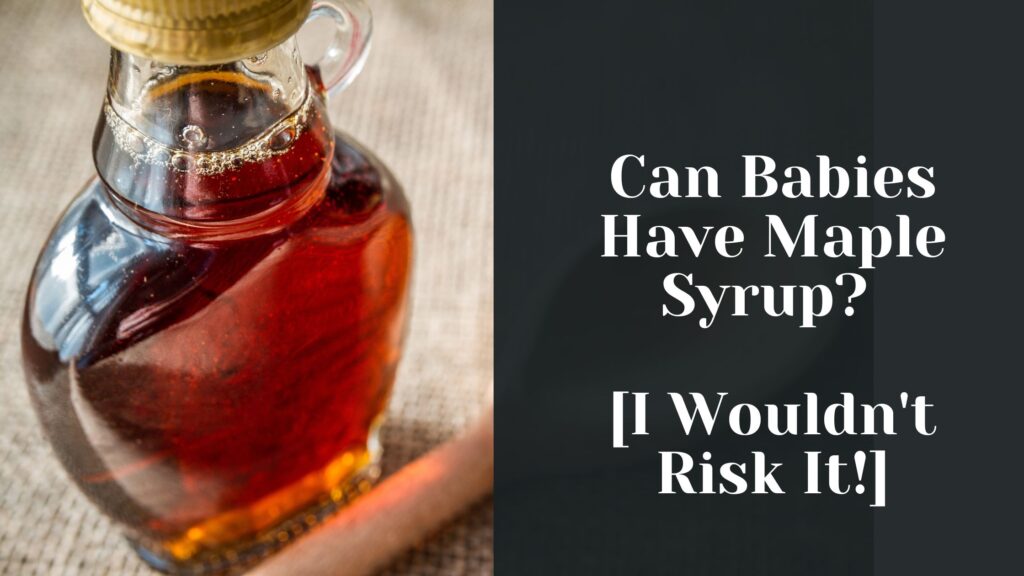Ackee fruit, also known as Ackee apple or Blighia sapida, is a good source of vitamins and minerals that are important for a healthy diet.
It contains several nutrients, such as:
- Vitamin C
- Vitamin A
- Iron
- Calcium
However, it’s important to note that ackee can be toxic if not properly prepared.
The fruit contains a toxic substance called hypoglycin, which can cause vomiting and even death if consumed in large amounts.
But can babies eat ackee fruit, even when properly prepared?
In this blog post, we’ll go over this question and more!
Can Babies Eat Ackee Fruit?
Unfortunately, there isn’t enough data to say whether or not babies can safely eat ackee fruit.
Since unripe ackee fruit can be extremely toxic, the US has prohibited the import of most ackee products for the past three decades and has only just begun to allow the import of canned ackee.
The effects of consuming unripe ackee fruit can range from mild to severe, with symptoms including stomach pain, vomiting, and even coma or death in severe cases.
I advise you to steer clear of giving ackee to your baby since children are more sensitive to toxins than adults are.
Discussing The Introduction of Ackee Fruit With Your Pediatrician
No matter what the internet says, you should always check with your pediatrician before introducing any new foods to your baby.
Your pediatrician can provide you with tailored advice based on your baby’s specific needs and any underlying medical issues.
Although there is little information on the safety of feeding ackee fruit to your infant, your pediatrician might be willing to let you try giving your child a tiny bit of this fruit due to its nutritional benefits.
Nutrients found in ackee
Ackee fruit contains important vitamins and minerals such as:
- Vitamin C
- Vitamin A
- Iron
- Calcium
- Potassium
- Magnesium
Vitamin C helps to boost the immune system and is important for healthy skin, while Vitamin A is important for healthy vision.
Iron is essential for the production of red blood cells and preventing anemia.
Comparison to other fruits
When compared to other fruits commonly given to babies, such as apples and bananas, ackee stands out as a great source of Vitamin C and Vitamin A.
However, it should be noted that ackee is also relatively high in calories, so it’s important to not overfeed it to your baby should your pediatrician allow you to try your baby on ackee fruit.
Properly selecting and cooking ackee
To prepare ackee for your baby, you would want to make sure that the fruit is fully ripe.
Identifying a ripe ackee can be a tricky task but as a general rule of thumb is that if the pod is open and the aril is yellow and soft, then it’s ready to be consumed.
In addition, ackee should be thoroughly cooked by boiling or steaming.
Possible allergies or sensitivities
As with any new food, it’s important to watch for any allergic reactions or sensitivities in your baby.
Symptoms of a food allergy or sensitivity include:
- Hives
- Rash
- Vomiting
- Diarrhea
- Difficulty breathing
If you notice any of these symptoms, stop feeding your baby ackee and contact your pediatrician.
Alternative Fruits To Ackee For Your Baby
As mentioned before, there is little information regarding the safety of ackee fruit for infants.
For this reason, unless you consult your pediatrician, I recommend you consider alternative fruits that have similar nutritional value.
Remember, though, that you should only feed breast milk or formula to your baby up until they are 6 months of age.
So, even the fruits below should be fed after your baby has reached that age.
Papaya
Papaya is a tropical fruit that is rich in Vitamin C, Vitamin A, and Vitamin E.
It’s also a good source of potassium and fiber.
Eating papaya can help boost the immune system, improve digestion, and promote healthy skin and eyes.
Papaya also contains an enzyme called papain which can aid in the digestion of proteins.
Kiwi
Kiwi is a small, brown fruit with a green flesh that is packed with Vitamin C, Vitamin K, and potassium.
Eating kiwi can help boost the immune system, promote healthy skin and eyes, and support bone health.
Kiwi is also a good source of dietary fiber which can aid in digestion.
Mango
Mango is a sweet, juicy fruit that is rich in Vitamin C, Vitamin A, and Vitamin E.
It’s also a good source of potassium and antioxidants.
Eating mango can help boost the immune system, improve digestion, and promote healthy skin and eyes.
Pineapple
Pineapple is a tropical fruit that is rich in Vitamin C, Vitamin B1, and manganese.
It’s also a good source of dietary fiber. Eating pineapple can help boost the immune system, improve digestion and support bone health.
Pineapple also contains an enzyme called bromelain which can aid in the digestion of proteins and reduce inflammation.
Guava
Guava is a tropical fruit that is rich in Vitamin C, Vitamin A and Vitamin K.
It’s also a good source of potassium and dietary fiber. Eating guava can help boost the immune system, improve digestion, and promote healthy skin and eyes.
Guava also contains antioxidants that may help to lower the risk of certain types of cancer.
Conclusion
Ackee fruit has a unique and exotic flavor and high nutritional value.
But as always, it is important to consult with your pediatrician before introducing any new foods to your baby, especially a risky food such as ackee fruit.
Proper preparation, cooking and serving are crucial to avoid any potential poisoning risks and it is important to monitor your baby for any allergies or sensitivities.
There are many other nutritious options available to include in your baby’s diet, so ask your pediatrician what other foods your baby can try.
With a balanced diet, your little one will grow healthy and strong!


